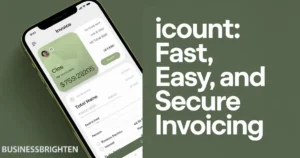The US real estate market is big and active. People buy and sell homes and buildings all the time. It offers many chances to make money.
A green card lets you live and work in the US permanently. For real estate work, it’s very helpful. With a green card, you can buy, sell, and manage properties freely.
This guide will show you how to get a green card for real estate work. It covers the steps, rules, and tips you need to know. We’ll help you understand the process clearly.
Understanding the US Green Card
The US green Card is a unique document. It allows humans from different international locations to live and work in the United States. Green Card holders can stay in the US forever if they follow the rules. They can work at almost any job they want.
Getting a Green Card can be hard. There are different ways to apply. Some people get one through family. Others get it through their job. The US government only gives out a certain number each year. Many people want Green Cards, so there’s often a long wait.
What is a Green Card?
A green Card is an official id card for immigrants in the US. It suggests that a person can stay and work in the US permanently. The authentic call is “Permanent Resident Card,” however people name it a green Card because it used to be green.

Benefits of a Green Card include:
- You can live in the US forever
- You can work at any job
- You can travel in and out of the US easily
- You can apply for US citizenship after a few years
- Your children can go to public schools for free
Here’s a simple table showing the differences between a Green Card and a visa:
| Green Card | Visa |
| Permanent stay | Temporary stay |
| Can work at any job | May have work restrictions |
| Valid for 10 years, renewable | Valid for a set time, often short |
| Path to citizenship | No direct path to citizenship |
| Can live anywhere in the US | May have location restrictions |
| No need to renew status | Must renew or change status to stay |
Types of Green Cards Available
There are following main types of Green Cards in US.
Family-Based Green Card:
You can get this if a close family member is a US citizen or green Card holder. This consists of spouses, dad and mom, kids, and siblings. The wait time depends on your relationship and your home country.
Employment-Based Green Card:
This is for people with special job skills. You usually need a job offer from a US company. There are different levels based on your skills and education. Some are for top experts, while others are for regular skilled workers.
Diversity Visa Green Card:
This is also called the “Green Card Lottery.” The US gives out 50,000 of these each year. People from countries with low US immigration rates can apply. It’s free to enter, but winning is based on luck.
Investor’s Green Card (EB-5 Visa):
This is for people who invest a lot of money in the US. You must invest at least $1.8 million in a business. In some areas, you can invest $900,000. Your funding must create at least 10 full-time jobs for US workers.
Related Blog: How Are Real Estate Taxes Calculated in Greene County, Tennessee
Pathways to Obtain a Green Card for Real Estate
There are several ways to get a green Card for real property paintings in the US. You may invest in a real property venture through the EB-5 application. Some other alternative is to paintings for a US actual property enterprise that sponsors you. You may additionally qualify if you have extraordinary capacity in actual property.

Employment-Based Green Card (EB-2 or EB-3)
Employment-primarily based green cards (EB-2 or EB-3) are for professional people in real estate. EB-2 is for those with advanced ranges or exceptional ability. EB-3 is for experts and skilled employees. Your corporation must show they cannot find a US employee for the job.
Investment-Based Green Card (EB-5)
The investment-based green Card (EB-5) allows traders to come to be U.S. permanent residents. To qualify, you have to invest at the least $1.05 million, or $800,000 in focused employment areas. Your funding want to create or keep at least 10 complete-time jobs for U.S. people. This pathway gives a risk for buyers and their households to live, paintings, and study in the U.S.
Other Potential Pathways
Other potential pathways in a field can offer diverse opportunities. They allow for flexibility and innovation. These paths might involve alternative careers, advanced studies, or specialized skills. Exploring them can lead to unexpected success and personal growth.
Eligibility Criteria for Green Card Applicants
Green Card applicants must usually have a qualifying family member, job offer, or asylum status. They must also meet health, security, and financial requirements.
General Requirements
- Must be at least 18 years old
- Must pass health and criminal background checks
- Need to show proof of financial stability
- Must meet certain education and work experience requirements
Specific Requirements for Real Estate Professionals
- Must have a valid real estate license to work legally
- Need proof of sponsorship or investment for certain cases
- Must comply with all state regulations and laws
- Experience in real estate can be a key requirement
The Application Process
The application process involves submitting forms and required documents. It also includes paying fees and attending interviews or appointments if needed.

Step-by-Step Guide to Applying
Applying for something can be simple if you follow the steps carefully. Each step ensures you meet all the requirements and complete the process smoothly.
- Gather all necessary documents and information.
- Complete the application forms accurately.
- Submit your application along with any required fees.
- Attend any interviews or appointments if required.
- Wait for the decision or approval notice.
Costs Involved
Applying for a Green Card can come with several costs. There are application fees that must be paid up front. Legal and administrative costs may also add up during the process. For EB-5 applicants, there are additional investment costs required. It’s important to budget for all these expenses.
Related Blog: Can a Landlord Terminate a Business Lease Early? A Comprehensive Guide
Working in Real Estate without a Green Card
Working in real estate without a green Card may be difficult. You might need a piece visa or sponsorship from a company. A few roles won’t be available due to prison regulations. It’s crucial to recognize the rules to avoid any problems.

Temporary Work Visas
Temporary work visas like the H-1B and L-1 can help you work in the U.S. without a green Card. The H-1B visa is for skilled people in specialised jobs, but it’s difficult to get for maximum actual property roles. The L-1 visa is for employees transferring from a agency’s foreign office to its U.S. department.
However, these visas include barriers. You regularly need corporation sponsorship, and self-employment isn’t normally allowed. Opportunities can be confined unless your role is highly specialised or you’re with a big worldwide company.
Real Estate Investment without Residency
As a foreign national, you may invest in U.S. real property without residency. But, you want to be aware of prison issues and tax implications. For example, you can face distinct tax costs, and you might want to document specific forms with the IRS.
It’s also important to understand property laws and hire specialists like attorneys and accountants to help you navigate those guidelines.
Challenges and Considerations
Applying for a visa can come with challenges like delays in processing times. Packages can be denied for various reasons, including incomplete paperwork or not assembly eligibility standards. To avoid this, make certain your application is thorough and accurate.
When investing in U.S. real estate, you need to understand tax obligations. This includes knowing what taxes you owe and while to pay them. Prison considerations also are essential, as actual property transactions can be complex. It’s smart to consult with legal and tax experts to ensure everything is done effectively.
8 best Tips for Success in Getting a Green Card for Real Estate
- Understand Visa Options: Know which visa category suits your situation, like EB-5 for investors.
- Gather strong Documentation: prepare detailed economic and employment statistics to aid your application.
- Work with an Immigration lawyer: Get professional help to navigate the technique and avoid errors.
- Meet investment requirements: make certain your actual estate funding meets the essential criteria for visa eligibility.
- Be patient: Processing can take time, so be prepared for delays.
- Stay Compliant: comply with all U.S. immigration and tax legal guidelines closely to keep away from problems.
- Build U.S. Connections: establish robust commercial enterprise relationships inside the U.S. real estate marketplace.
- Keep records organized: maintain clean and updated statistics of all of your investments and transactions.
Frequently Asked Questions
Can I get a Green Card through real estate investment?
Yes, with the EB-5 visa by investing $1.05 million ($800,000 in targeted areas) and creating 10 jobs.
What are the main Green Cards for real estate professionals?
EB-2, EB-3 (employment-based) and EB-5 (investment-based).
Do I need a U.S. job offer for a Green Card?
Yes, for most types, except EB-5.
Can I work in real estate without a Green Card?
Yes, with a work visa like H-1B or L-1.
What are the benefits of a Green Card in real estate?
You can work freely, invest, and apply for citizenship.
Final Thoughts
Getting a green Card for real estate work inside the U.S. can unlock many possibilities. It permits you to stay, work, and invest without restrictions. But, the manner can be complicated and requires careful planning.
To succeed, it’s important to understand your alternatives and meet all necessities. Persistence is key, as the journey can take time. With the right approach, a green Card may be your gateway to a thriving actual property profession in the U.S.

Paul Mitchell, our website’s author, leverages 6 years of business expertise to provide insightful content. His wealth of experience enriches our platform, offering valuable insights for our readers.











